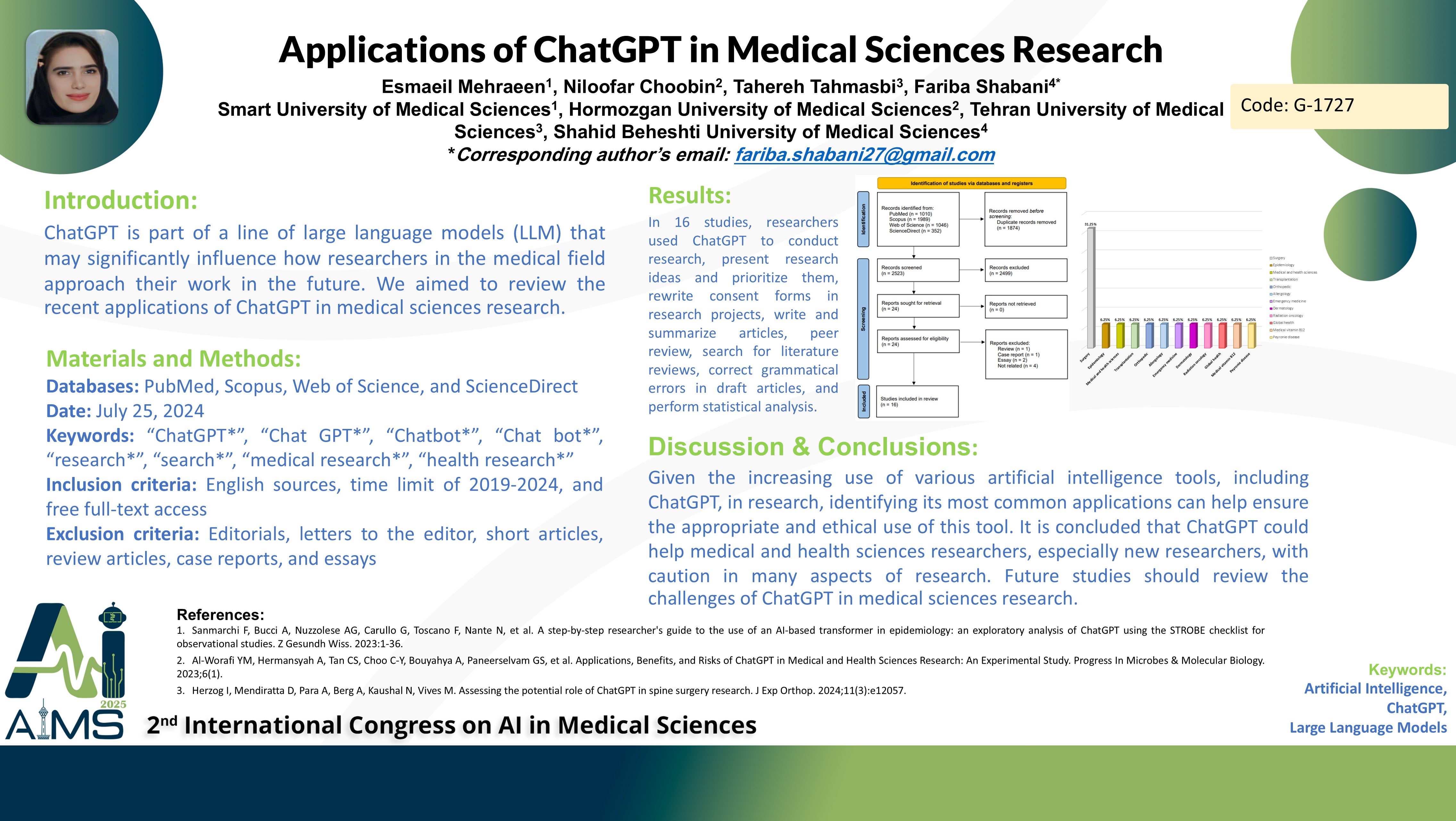Applications of ChatGPT in Medical Sciences Research
Code: G-1727
Authors: Esmaeil Mehraeen, Niloofar Choobin ℗, Tahereh Tahmasbi, Fariba Shabani *
Schedule: Not Scheduled!
Tag: Intelligent Virtual Assistant
Download: Download Poster
Abstract:
Abstract
Background and aims: ChatGPT is part of a line of large language models (LLM) that may significantly influence how researchers in the medical field approach their work in the future. We aimed to review the recent applications of ChatGPT in medical sciences research. Method: To review the literature, the information sources available in the PubMed, Scopus, Web of Science, and ScienceDirect databases were used. The search in these databases was conducted on July 25, 2024 using keywords such as “ChatGPT*”, “Chat GPT*”, “Chatbot*”, “Chat bot*”, “research*”, “search*”, “medical research*”, “health research*”. Results: Sixteen articles met the inclusion criteria for full-text review. The present study's findings showed that the most common application of ChatGPT was in research in the field of surgery. Results from other articles showed that this tool is also used for research in other areas of medical sciences, such as epidemiology, kidney transplantation, orthopedics, emergency medicine, dermatology, and global health. In all studies, researchers used ChatGPT to conduct research, present research ideas and prioritize them, rewrite consent forms in research projects, write and summarize articles, peer review, search for literature reviews, correct grammatical errors in draft articles, and perform statistical analysis. Conclusion: Given the increasing use of various artificial intelligence tools, including ChatGPT, in research, identifying its most common applications can help ensure the appropriate and ethical use of this tool. It is concluded that ChatGPT could help medical and health sciences researchers, especially new researchers, with caution in many aspects of research. Future studies should review the challenges of ChatGPT in medical sciences research.
Keywords
Artificial Intelligence, ChatGPT, Large Language Models
